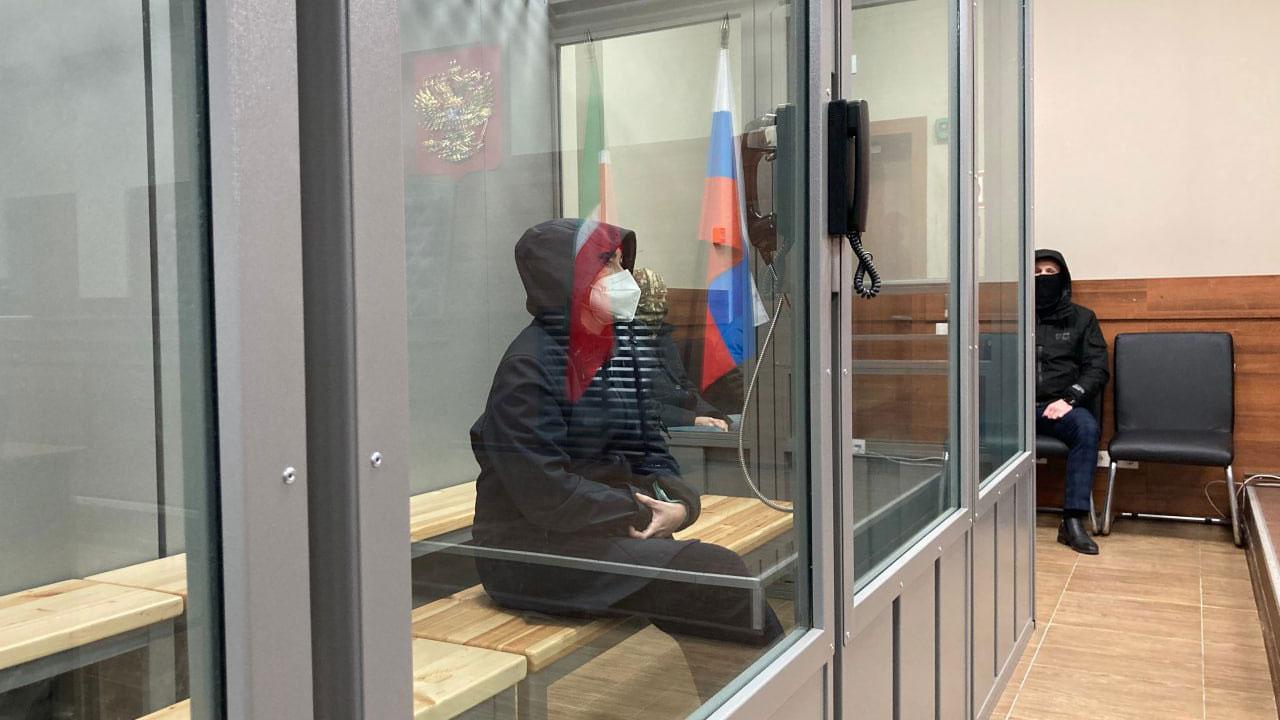Earlier this week, a video appeared online and then on Russian state TV showing journalist Alsu Kurmasheva being taken into custody.
She is led by four masked men to a police precinct in Kazan, the capital of the Tatarstan Republic in Russia.
Kurmasheva is a dual US-Russian citizen who works for the US-funded Radio Free Europe Radio Liberty news service. She was accused of failing to register as a foreign agent and collecting information about the Russian military as a “foreign entity.”
US State Department spokesperson Matthew Miller said in a briefing yesterday that the US has been tracking Kurmasheva’s case since May, when the Russian government first seized her passports and prevented her from leaving the country.
“We haven’t made the details of our work public, because we thought it was not helpful to the cause to get her to leave,” Miller said.
Kurmasheva’s troubles with the Russian authorities started in early summer, when she traveled from her hometown of Prague, in the Czech Republic, to Russia, because of a family emergency.
Then in June, as she was planning to return to Prague, she was stopped by Russian authorities.
Dmitrii Anisimov, who works with OVD-info, a Russian human rights organization that tracks political persecution, has also been following Kurmasheva’s case.
“Russian authorities took her both passports, American and Russian, and Alsu couldn’t leave Russia without her passports, then she became a defendant in a criminal case, she was accused of violating Russian foreign agent legislature,” he explained.
Kurmasheva was fined for not registering her US passport with Russian authorities.
Later, Kurmasheva was charged with failing to register as a foreign agent, a crime that carries a max sentence of five years in prison.
“[The] Russian ministry of justice can recognize [an] NGO as a foreign agent, if it receives any foreign money, and then year by year, the legislation was becoming more cruel, more simple to use against political and human rights organizations, against independent media,” Anisimov said.
The foreign agent law was first passed in Russia, back in 2012, but over the last decade, the Kremlin has used it as a tool for intimidation and criminal prosecution.
Since Russia’s full-scale invasion of Ukraine in February 2022, Russia’s government has expanded its crackdown on independent journalism.
In March, Russia detained American journalist Evan Gershkovich on charges of espionage, an accusation that his newspaper, The Wall Street Journal, and the State Department deny.
“I guess that [the] Russian government takes foreign journalists, maybe for exchange for Russian spies or Russian criminals who are in jails in the United States,” Anisimov said.
Russia has detained other Americans in the past, and used them in prisoner swaps.
Ruslan Aysin, a Tatar political analyst based in Turkey, has known Alsu Kurmasheva for over a decade.
Aysin said that Kurmasheva wrote about women’s rights and the rights of ethnic minorities, as well as Russian state discrimination against non-Russian minorities — especially in the Republic of Tatarstan, her place of origin.
Aysin believes that Russian authorities detained her, in part, because they didn’t approve of her work.
In the US Congress on Thursday, Senate Majority Leader Chuck Schumer spoke about Alsu Kurmasheva’s case.
“It’s no secret that Russia has a long and disturbing history of unjustly detaining US citizens, especially members of the free press. But let me be clear, journalism is not a crime, and should never be met with persecution, intimidation, suppression.”
Looking ahead, it could take months, or even years before Kurmasheva receives her final sentence. In the meantime, as she waits for her day in court, she’ll remain locked up in a Russian jail cell.
We want to hear your feedback so we can keep improving our website, theworld.org. Please fill out this quick survey and let us know your thoughts (your answers will be anonymous). Thanks for your time!
